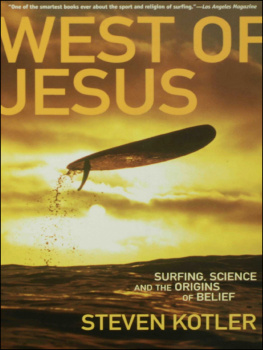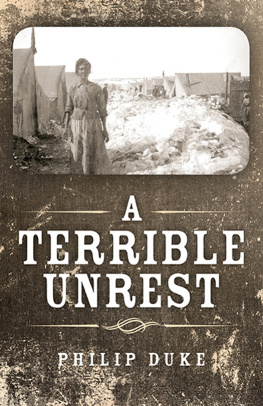Thank you for downloading this Crossway book.
Sign-up for the Crossway Newsletter for updates on special offers, new resources, and exciting global ministry initiatives:
Crossway Newsletter
Or, if you prefer, we would love to connect with you online:
1 Kings 613
One question we have not explored yet, but which is worth asking, is this: When did the exodus from Egypt finish? On the night of Passover? When the Israelites had crossed the Red Sea? When they received the law? At the death of Moses? After the crossing of the Jordan or the fall of Jericho? At the death of Joshua? When David became king? Never?
One answer suggests that the exodus ends much later than we usually think: In the four hundred and eightieth year after the people of Israel came out of the land of Egypt, in the fourth year of Solomons reign over Israel, in the month of Ziv, which is the second month, he began to build the house of the Lord (1 Kings temple, the dwelling place of God, somehow completes the exodus. The dream that had gripped the Israelites as they fled Egypt that night, with bowls of dough on their shoulders and anxious children in towthe dream of being secure, prosperous, at peace, ruled by a wise king, and with a permanent house in which Gods glory lives foreverhas finally been realized.
It is hard for us to grasp the significance of the temple. Israel did not see it mainly as a structure, or even as a place to go and offer sacrifice; they saw it as the place where God came down to meet them, the meeting point of heaven and earth. In fact, the whole thing was built to suggest a fruitful, verdant, and well - watered garden.
A walk through the temple would reveal images of pomegranates, open flowers, palm trees, lilies, cedars, and olive wood. There were basins of water sitting on bronze stands with chariot wheels (which would have also reminded worshipers of the time they walked between walls of water, chased by chariot - riding Egyptians). There were two guarding cherubim in the inner room, images of cherubim on the walls and at the doors, and two huge bronze pillars guarding the entrance to the temple, all of which echo the cherubim set up as sentries at the entrance to the garden of Eden. The temple is even described as having a face, ribs, and shoulders (1 Kings 6:3, 5, 8; 7:39), which guide our minds back to the way Eve was built from Adams rib in the garden. The temple is an architectural symbol of the bride that Solomon brings to the Lord. It is also, like Eden, a sanctuary where God would be especially present, and into which the riches of the nations would comea pattern that begins almost immediately with the visit of the Queen of Sheba.
If only we could stop the story at 1 Kings 8. The temple is built and dedicated. The glory has come. Israel is settled, rich, peaceful, and happy. All the promises have come to pass. And they all lived happily ever after.
Except that they didnt, and those of us who have read exodus stories before will already know why. Solomon, like Adam and Israel before him, falls, and in doing so switches from being the heroic Joshua of this exodus story into being its tragic Pharaoh. He starts by marrying Pharaohs daughter (1 Kings 9:16). Then he uses forced labor to complete building projects, like Pharaoh, and builds store cities, like Pharaoh (9:1519). Then he builds a fleet and stations it on the Red Sea (9:26). He amasses horses from Egypt, chariots from Egypt, and gold (10:1429). He worships false gods, building high places for idolatrous sacrifice (11:18). In an extraordinary echo of Exodus 12, Solomon even ends up opposed by a young man from another nation who was nearly killed at birth, but escaped to Egypt, ended up joining Pharaohs family, asked for permission to leave, and then became an adversary (11:1422). Solomon tries to kill the man he has placed in charge of the forced labor, Jeroboam, who flees toyouve guessed itEgypt (11:2640). By the time Solomons son takes over the throne, the people are referring to Solomon as a king who made our yoke heavy and disciplined... with whips (12:1011). The son of David has become the scourge of Israel. The seed of the woman has become the dragon.
Worse is to come. As an act of judgment on Solomon, God splits the kingdom into two: the southern two tribes under his son Rehoboam, and the northern ten tribes under Jeroboam. If we had any hope that this might put a stop to Israels descent into idolatry, it is immediately dashed; Jeroboam becomes the new Aaron, setting up worship of not just one but two golden calves, and declaring, Behold your gods, O Israel, who brought you up out of the land of Egypt (1 Kings 12:28). He sets up a new priesthood for idolatrous worship, and even names his sons Nadab and Abijah (14:1, 20), just as Aaron named his boys Nadab and Abihu. Rehoboam fares no better; he is continuously at war with the northern tribes, and the king of (once again) Egypt comes up against him and plunders the temple. In the space of a few years, exodus triumph has become wilderness rebellion.
Yet the God of the exodus is still there. He remembers his covenant. And into this chaotic disintegration, this calamitous mess, he speaks. He raises up a man of God, a mini -Moses, to judge Jeroboam and promise the eventual destruction of idolatrous worship (1 Kings 13). This prophet from Judah, whose name we do not even know, confronts the king (as Moses did), confirms his word with a miraculous sign of judgment against him (as Moses did), sees the altar split (as the tablets of stone were split), and sees its ashes poured out (as the golden calf was ground to powder and poured out). More ominously, this prophet even gets distracted on his journey, disobeys God, and dies before he reaches his destination (as Moses did). But before he does, he speaks a word of judgment, which is also a word of promise: O altar, altar, thus says the Lord : Behold, a son shall be born to the house of David, Josiah by name, and he shall sacrifice on you the priests of the high places who make offerings on you (13:2). Like Moses, this man of God can see a future in which God will once again act to deliver the nation by raising up a leader who will abandon foreign gods and unite the nation. It will take a while, though. Israel had to wait forty years for Joshua. She will have to wait nearly three hundred years for Josiah.
Six hundred years after Josiah, another prophet from Judah will come to Israel. He will confront the nations rulers and speak judgment against their acts of worship, confirming his words with miraculous signs. He will turn over the temple tables, temporarily bringing the sacrificial system to a standstill, and denounce those who run it as a gang of robbers. He will also be ignored, killed, and buried in another mans grave. Like Jeroboam, Jerusalems leaders will simply put all the tables back and carry on as normal, and as the man from Judah is killed by a lion, so the Lion of Judah will be killed by men.
What happens in death, however, makes all the difference. When Josiah finally fulfills this prophecy and destroys Jeroboams altar, he finds the tomb of the prophet from Judah and insists that nobody move his bones (2 Kings 23:18). When they found the tomb of the prophet from Judea, on the other hand, there were no bones left to move.
Review Questions
1. How might the building of the temple be regarded as the completion of the exodus? How does it resemble Eden?
Next page











